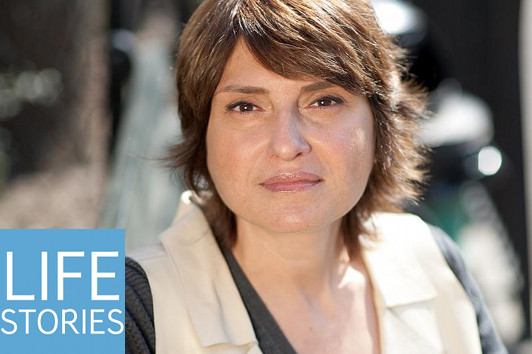Alone at the End of the World: Edan Lepucki’s California
Frida and Cal are riding out the decline of civilization in a remote forest home. When they fled Los Angeles, things had gotten so bad that the last superstore open for business was only accepting gold, “and not jewelry—it had to be melted down already.†The early stages of disaster are revealed in fleeting backward glimpses: LA was brought down by an earthquake that left “collapsed houses and condemned schools everywhere, and the 101 severed in two at the 110,†while Cleveland had been taken out by a mega-snowstorm. But the how and the why of the end of the world are secondary matters where debut novelist Edan Lepucki is concerned. She brings a much more intimate focus to California, zooming in on Cal and Frida as the world (and the past) they left behind proves less distant than they’d thought.
California is a novel of secrets and slow reveals, and it’s hard to say much about what unfolds without giving away key surprises. The young couple think they’re alone in the forest. The one neighboring family is gone, and their only contact now is with a wandering junk peddler named August. Yet Cal does, in fact, know that the outside world is not so far away; he’s simply made a point of avoiding it, until Frida tells him she’s pregnant and they decide they have to make an attempt to reach out to a community bigger than themselves, even if that community is unlikely to want them… or any other outsiders.
The surprise they find when they reach The Land, a settlement a few days’ journey away, barricaded by a maze of towering spikes constructed of seemingly random materials (reminding Frida of the Watts Towers and Cal of a crown of thorns), sets a psychological reversal in motion. Frida, who had eagerly sought out the help of others, is unsettled as she learns more about The Land’s past; Cal, who hadn’t wanted to leave their isolated safe haven, starts to reconcile himself to their new circumstances, looking for ways to work around the threats that present themselves.
Though presented as literary fiction, California reads like a vein of character-driven science fiction I first came to appreciate in the 1980s and ‘90s in outlets like Asimov’s and Fantasy & Science Fiction. The novel wears its speculative conceits lightly—and, of course, in this case the speculative conceit is the absence of futuristic technology, a world where lights powered by car batteries feel unbearably intrusive. The discoveries that Cal and Frida make about The Land are matched, perhaps even surpassed, by the discoveries that they make about each other and their capacity to keep secrets from each other, even when they’re cut off, physically or psychologically, from the rest of the world. That holds true right up to the end, as Lepucki delivers the couple to a superficially safe resting point where some readers may find the novel’s most disturbing undercurrents.
(NOTE: This post originally appeared on Beacon.)
9 July 2014 | read this |
Life Stories #75: Rayya Elias
Subscribe to Life Stories in iTunes
In this episode of Life Stories, the podcast where I interview memoir writers about their lives and the art of writing memoir, Rayya Elias tells us about Harley Loco and a life of “hard living, hair, and post-punk, from the Middle East to the Lower East Side.” We start with Elias’s childhood in Syria, then growing up in Detroit in the late 1960s and ’70s when her family came to the United States, and the desires that led her towards New York City. She talked about how she turned to drug use as a way push aside the internal conflicts she was dealing with over her sexuality and her efforts to break away from her past. The drugs, she says, “unlocked me a little bit, helped me move past all of those barriers that I felt contained me. That was my first experience, and it was amazing. Not only was I able to fit in, but I was also able to be comfortable in my own skin, and able to just be freer.” It didn’t stop there:
“When the harder drugs started happening… here in New York, in the art scene, in the music scene, and I was looking up to see who were the people I was mostly attracted to in my life, they were the people that were out there using drugs and still having these lives that were beyond my imagination…They were doing it, and they seemed f’ed up… and [yet] they seemed to be doing a really job at being everything. And I thought, wow, I can do that!”
She couldn’t, though, and she writes about the long downward spiral that followed, and the slow process of turning her life around. We also talk about how she’d originally set out to turn her story into a movie, when the encouragement and generosity of Elizabeth Gilbert steered her towards memoir.
Listen to Life Stories #75: Rayya Elias (MP3 file); or download this file by right-clicking (Mac users, option-click). Or subscribe to Life Stories in iTunes, where you can catch up with earlier episodes and be alerted whenever a new one is released. (And if you are an iTunes subscriber, please consider rating and reviewing the podcast!)
6 July 2014 | life stories |


 Our Endless and Proper Work is my new book with Belt Publishing about starting (and sticking to) a productive writing practice.
Our Endless and Proper Work is my new book with Belt Publishing about starting (and sticking to) a productive writing practice. 
